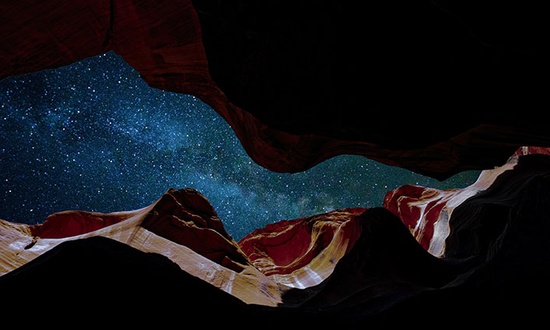The world says, “You can never go home again.” It means that while we were gone, home changed and so did we. Our old house may have been destroyed or sold, been renovated, or become run-down.
In contrast, when this life is over—and particularly when we arrive on the New Earth—God’s children will truly be able to come home for the very first time. Because our home in Heaven will never burn, flood, or be blown away, we’ll never have to wonder whether home will still be there when we return. The new heavens and New Earth will never disappear. They’ll give a wonderful permanence to the word home.
“But as it is, they desire a better country, that is, a heavenly one. Therefore God is not ashamed to be called their God, for he has prepared for them a city” (Hebrews 11:16). Like Abraham, we are “looking forward to the city that has foundations, whose designer and builder is God” (Hebrews 11:10).
Theologian Donald Bloesch suggests, “Our greatest affliction is not anxiety, or even guilt, but rather homesickness—a nostalgia or ineradicable yearning to be at home with God.” That craving for our heavenly home is sweet and deep. Home is our reference point, what we always come back to. Even in this present life, no matter how much we enjoy our adventures away, we anticipate coming home.
C. S. Lewis wrote about Sehnsucht, a German word for “yearning.” Sehnsucht is used to describe a longing for a far-off country that’s, for now at least, unreachable. In Til We Have Faces, Lewis touched on this theme: “It almost hurt me . . . like a bird in a cage when the other birds of its kind are flying home . . . to find the place where all the beauty came from—my country, the place where I ought to have been born. The longing for home.”
Speaking of longing for home, a reader asked me if it’s possible he’ll visit his childhood hometown one day on the New Earth. This made me think about how I have countless pleasurable memories from my own childhood. Even those who endured childhood traumas usually have some good memories too. When I ride my bike through my old neighborhood (only a few miles away from my current home), that fond familiarity comes over me like a wave. The hills, the houses, the fences and fields, the schoolyard where I played football and shot baskets. When I gaze at the house I grew up in, every room in that house, every inch of that property, reverberates with memories of my father, mother, brother, friends, dogs, cats, frogs, and lizards. When I go past my childhood home, I step back into a place inseparable from who I was and am, inseparable from my family and friends.
Might this earth’s places that we loved and enjoyed be resurrected to the New Earth? In becoming new, will the old Earth retain much of what it once was? The New Earth will still be just as much Earth as the new us will still be us. Shouldn’t we expect, then, that some of the same geological features of the old Earth will characterize the new? Shouldn’t we expect the New Earth’s sky to be blue? Might God refashion the rain forests or the Grand Canyon? If the earth becomes the New Earth, might Lake Louise become the New Lake Louise? Might we travel to a familiar place and say, “This is the very spot we stood on,” in the same sense we’ll be able to say, “These are the very hands I used to help the needy”? I think it’s quite possible we will one day visit favorite places that for years have only existed in our memories.
Writing of the earth’s resurrection, C. S. Lewis suggests a continuity between this earth and the New Earth: “I can now communicate to you the fields of my boyhood—they are building-estates today—only imperfectly, by words. Perhaps the day is coming when I can take you for a walk through them.”
So I don’t look back nostalgically at wonderful moments in my life, wistfully thinking the best days (and places) are behind me. I look at them as foretastes of an eternity of better things. The buds of this life’s greatest moments don’t shrivel and die; they blossom into greater moments, each to be treasured, none to be lost.
“Thanks, Lord, that the best is yet to be.” God will one day clear away sin, death, and sorrow, as surely as builders clear away debris so they can begin new construction. What He will resurrect on the New Earth—and the surprises He has in store for us—will be wonderful beyond what we can now imagine!
Browse more resources on the topic of Heaven, and see Randy’s related books, including Heaven.Photo: Unsplash




